2 min read
What is Google Search Generative Experience? (SGE)
What is Google SGE? Think of Google SGE as your helpful buddy on the search results page. Instead of making you click on different websites, it pulls...
11 min read
 Louise Ali
:
Sep 25, 2023 10:47:57 AM
Louise Ali
:
Sep 25, 2023 10:47:57 AM
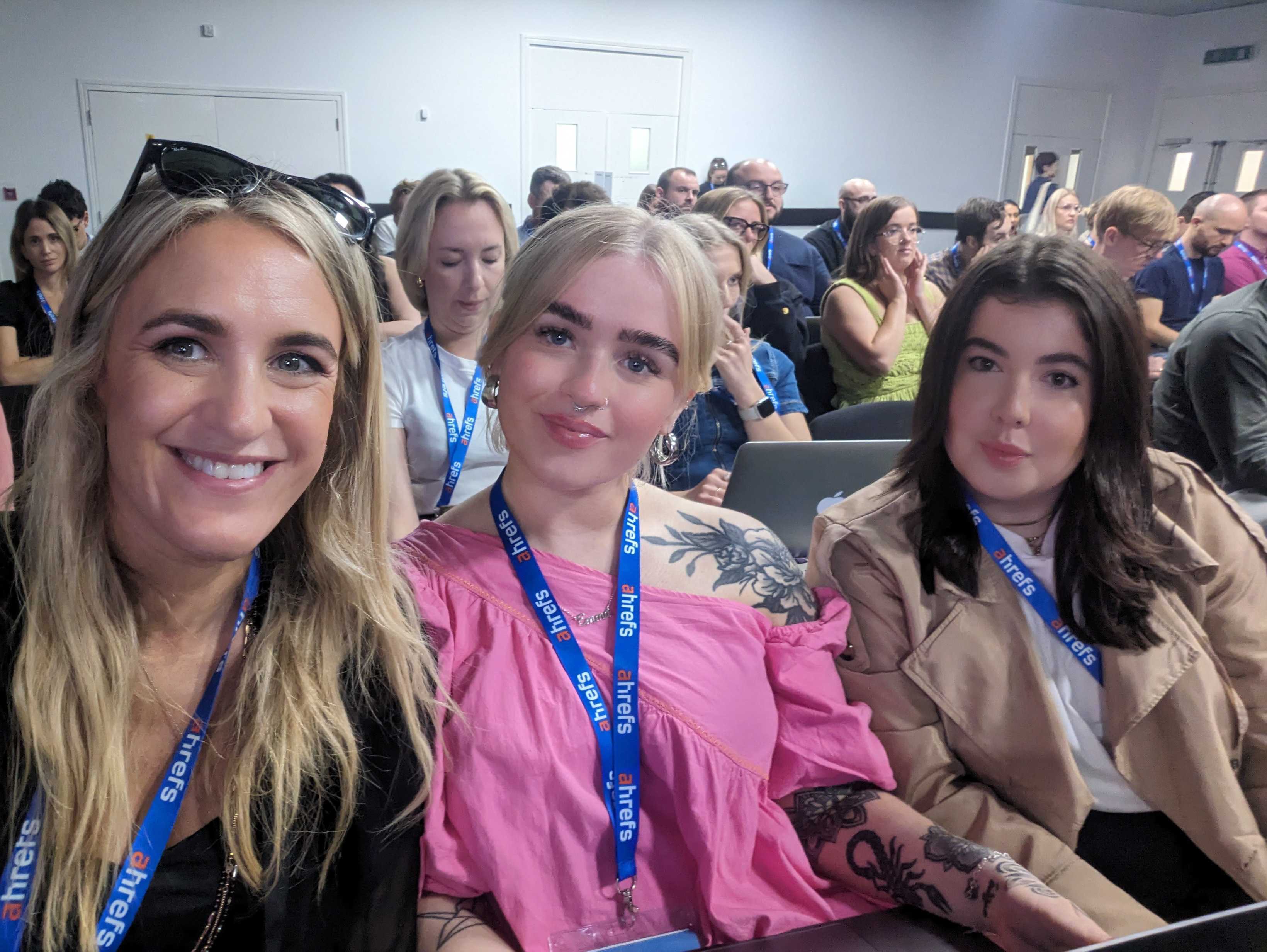
The Honchō Digital PR team attended the iconic brightonSEO earlier this month for both the PR & Link Building Show, and the main conference. brightonSEO is a brilliant opportunity for our team to grow their skills and immerse themselves in the world of SEO - and let’s not forget the networking.
From memes to campaign relevancy, AI to ideation tips, Q&A’s quizzing Google’s John Mueller on Google’s updates and, of course, dazzling performances at the karaoke after parties (forever sorry about our rendition of 9-5), our team have pulled together their highlights and key takeaways from the event.
“Brand building goes beyond links and coverage.”
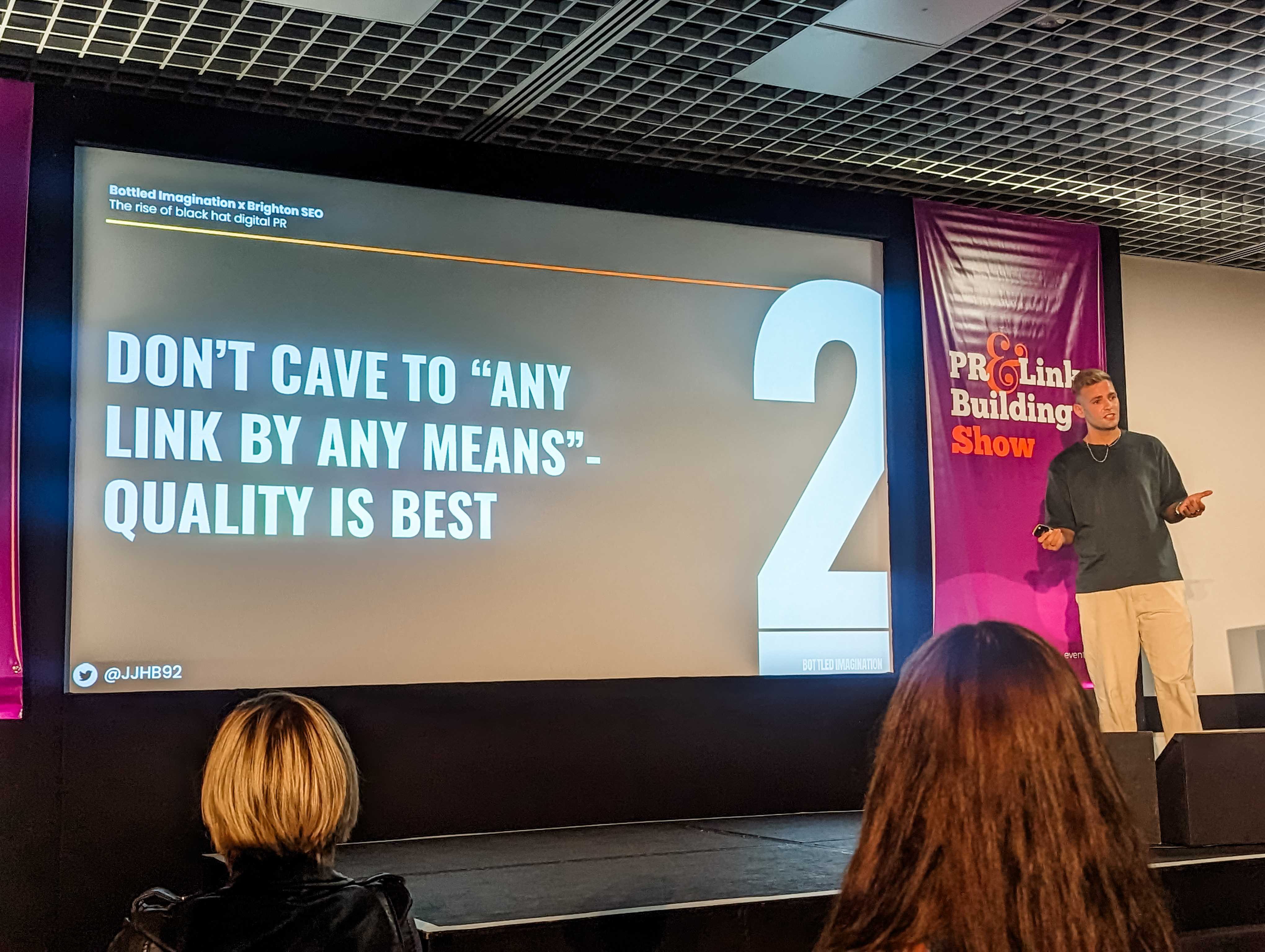
I was so excited to sit in this talk when I learned the title, and it did not disappoint. It actually blew my mind a little bit.
We’re in such a competitive market now, that agencies are aiming to win business by reducing costs and increasing targets. It’s the latter which is resulting in ‘any links by any means’. Enter, Blackhat Digital PR, which by James’ definition is where PRs manipulate journalists and consumers through the media.
The first example of this was around ‘disinformation for links’ and it had me aghast. The negative side to AI and tech advancements is that it’s made the barrier to entry for ‘dodgy hacks’ even lower. We now have bots posing as experts in exchange for links and fake news sites made up purely of AI content…and we’re just in the early stages of this AI era, it could potentially get worse. I feel confident that a lot of my industry peers have trust at the core of what they do, but there are some that don’t, and potentially a handful that will find ways of using AI in this way as a ‘quick win’. As an industry we need to lean into this and call it out where we see it.
James then moved on to my biggest ick - irrelevant campaigns. More often than not, we see these with brands that are classically considered ‘hard industries’ to build campaigns around such industries as gambling, vaping, and crypto. We’ve all seen campaigns on hayfever hotspots for a gambling brand, or how to care for your houseplants for a vaping brand. It feels like Digital PRs in these cases have just given up trying to create something that is genuinely useful and relevant because it’s too hard. But it’s not impossible, you just have to get more creative with it.
James shared a great Venn diagram which illustrates that the sweet spot is in the middle of:
1) What you want to talk about.
2) What journalists want to talk about.
and
3) What your consumers care about.
It’s that last point that feels missing in some of these cases. Yes, hayfever and plants have mass appeal, but that’s not necessarily what YOUR consumers care about. Campaigns that are irrelevant to brand are sending confusing messages to consumers, and Google!
And finally James brings up ‘spray and pray’. To combat this, Digital PRs need to diversify their promotional tactics and create campaigns that will succeed through different channels to help improve our chances. If something does well on social it will get picked up by the mainstream press. If you’re creating great, relevant, interesting campaigns, you don’t need to ‘spray and pray’, you’ll see success through targeting relevant journalists and approaching them in a way that shows you’ve done your research.
“Create a better experience for your audience by allowing them to influence your content decisions.”
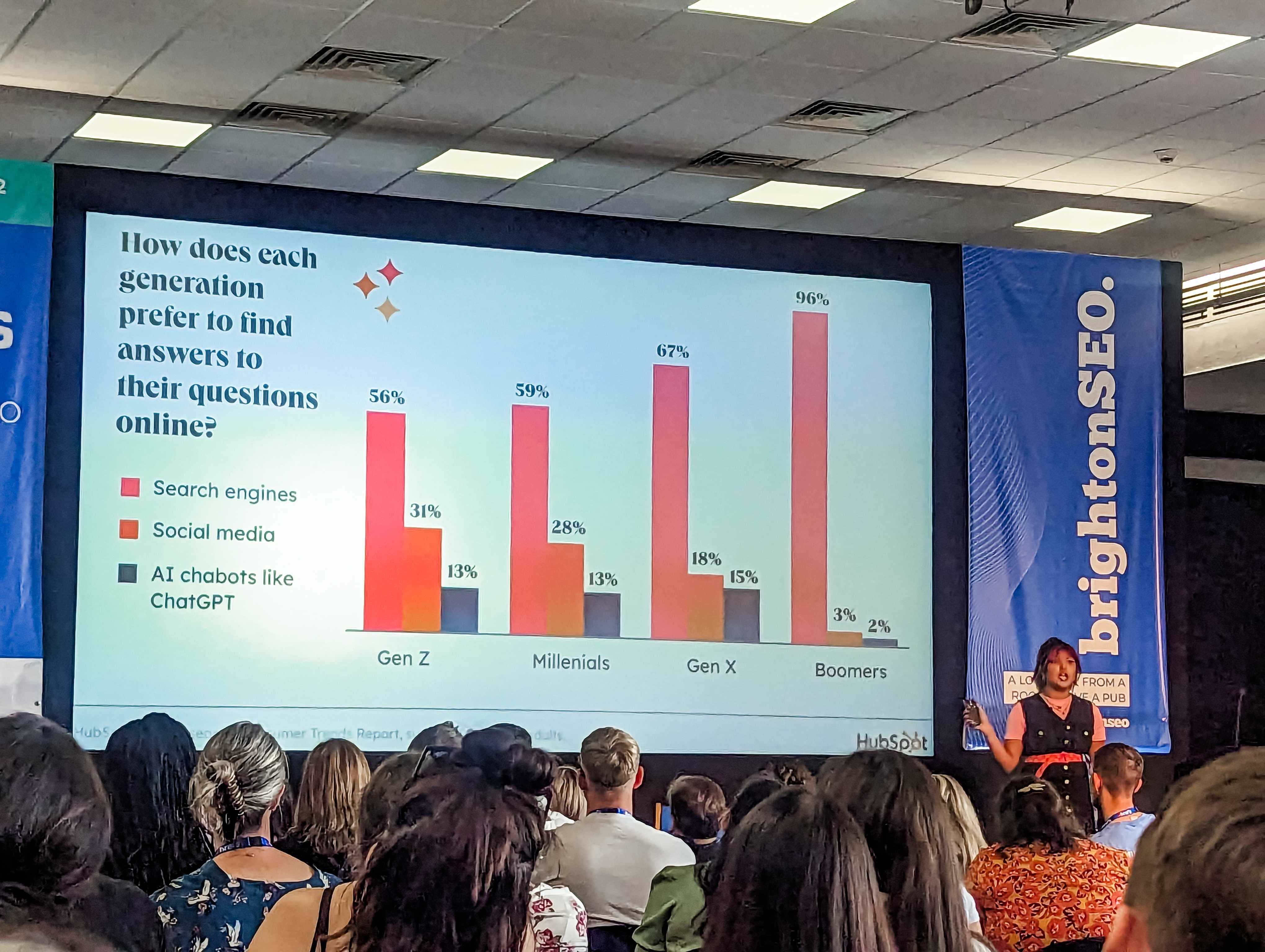
We really enjoyed all the talks around using social media in order to amplify your campaigns once they're built, however it was refreshing to hear from Meg about how we can ALL (Digital PRs, SEOs and Content Marketers) use social media at the planning stage.
Meg proposed that we shouldn’t apply our own knowledge on a topic when coming up with ideas around the audience, keywords and content. Instead we should refer to online communities as a source of inspiration.
In Digital PR we always have E-E-A-T in the back of our minds when coming up with ideas, however, as Meg points out, there is no better place to source experience, expertise, authoritativeness, and trustworthiness than on Facebook, Reddit and TikTok.
People use these communities to ask questions and find answers, whether that’s on parenting groups, niche hobbies, pets and beyond – I particularly loved the axolotls Facebook group she used as an example. You don’t see enough axolotls in conference talks IMHO.
In these groups you’ll learn more about your target audience and what really matters to them. You can see what questions are being asked regularly and create content around those topics.
In addition, these platforms are a great source for finding keywords. To do this on Reddit you simply look at words used in subreddits. On TikTok look at the hashtags used on posts relevant to your topic.
Overall, you can use social media in the early stages of your campaign planning to create a better experience for your audience. It’s on these platforms you find out what they care about, what jargon they are using, their pain points, and problems. They are a hive of data and information which can and should contribute to coming up with better quality content ideas.
Thierry Ngutegure - SEO’s Sixth Sense: Seeing SEO’s Future in Today’s Numbers
“The future of SEO is holistic, predictive, and actionable.”
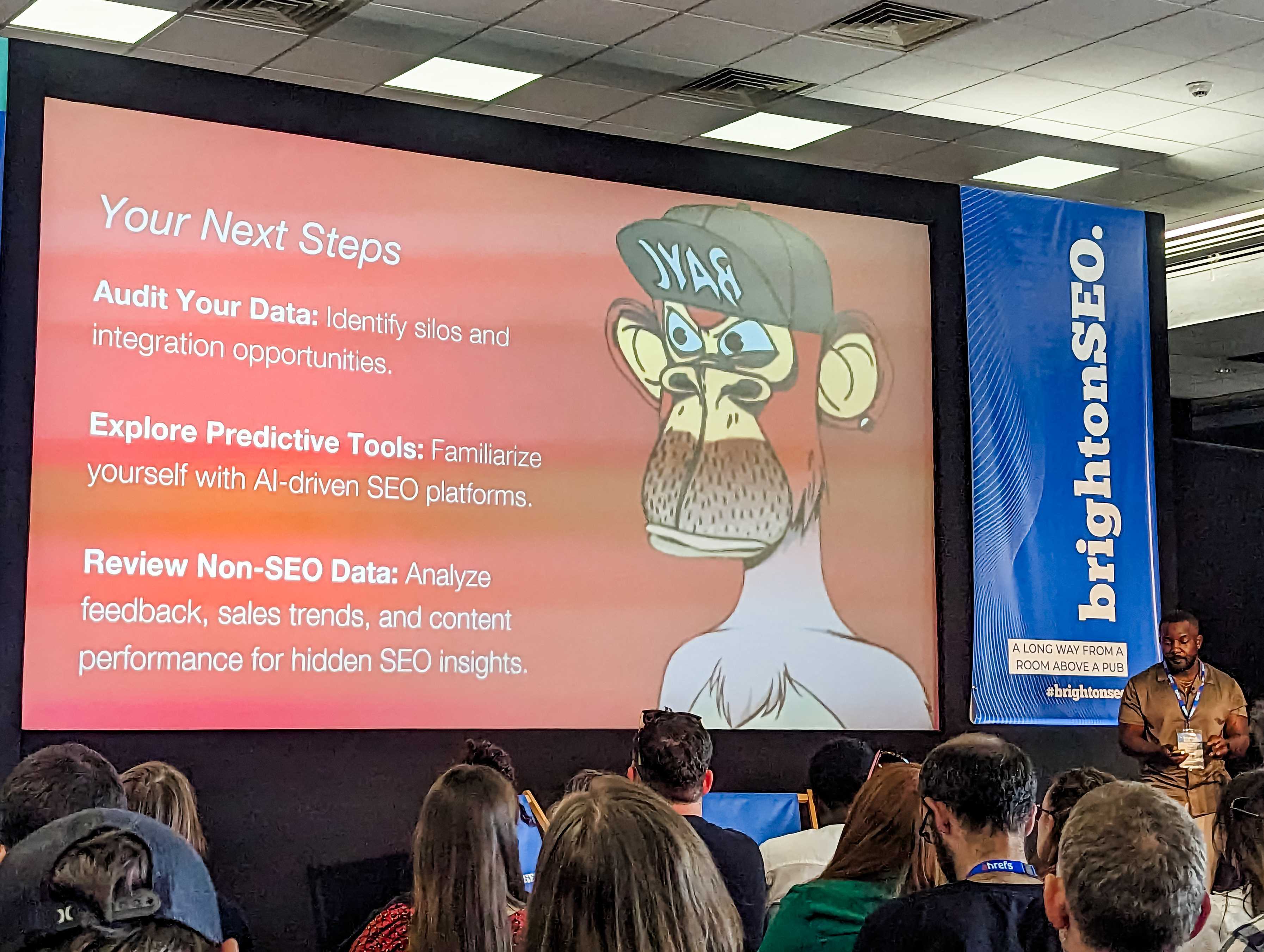
If you don’t know or follow Thierry, you need to change that fast. The way he uses data insights in SEO, Digital PR and brand building is awe-inspiring. When he talks about this topic at conferences or on podcasts (as I have heard him do so on several occasions) he keeps it digestible and actionable - and his talk at Brighton was just that.
In this talk he drove home the message of how important it is to break down silos within organisations to encourage data sharing and cross department collaboration. Each team is sitting on valuable data, which they use well within their own departments, but by sharing these insights across the company allows us to see patterns, overlaps and insights that were previously hidden.
To do this you need to:
I also loved his advice on forecasting trends and consumer behaviour in order to stay ahead of the curve. The specific example he used was about seasonal trend analysis, which can so easily be applied whether you’re wanting to ensure you have enough stock of a product in, or if you’re planning content and campaigns. This is where you’d have a list of all the relevant keywords alongside their monthly search volumes over the course of a year so you can see where they’re peaking. This can also be aligned with overall trends and sales data. It’s so simple it made me feel stupid.
And finally, listen to your customer! Find their feedback, what makes them happy, what they’re complaining about regarding your brand or products, identify their pain points and create content that meets their needs. Look at what’s selling and what’s not, in terms of product and content, and work with that data instead of trying to flog dead horses (my words, not his).
“Strive for relevancy and you won’t go wrong!”
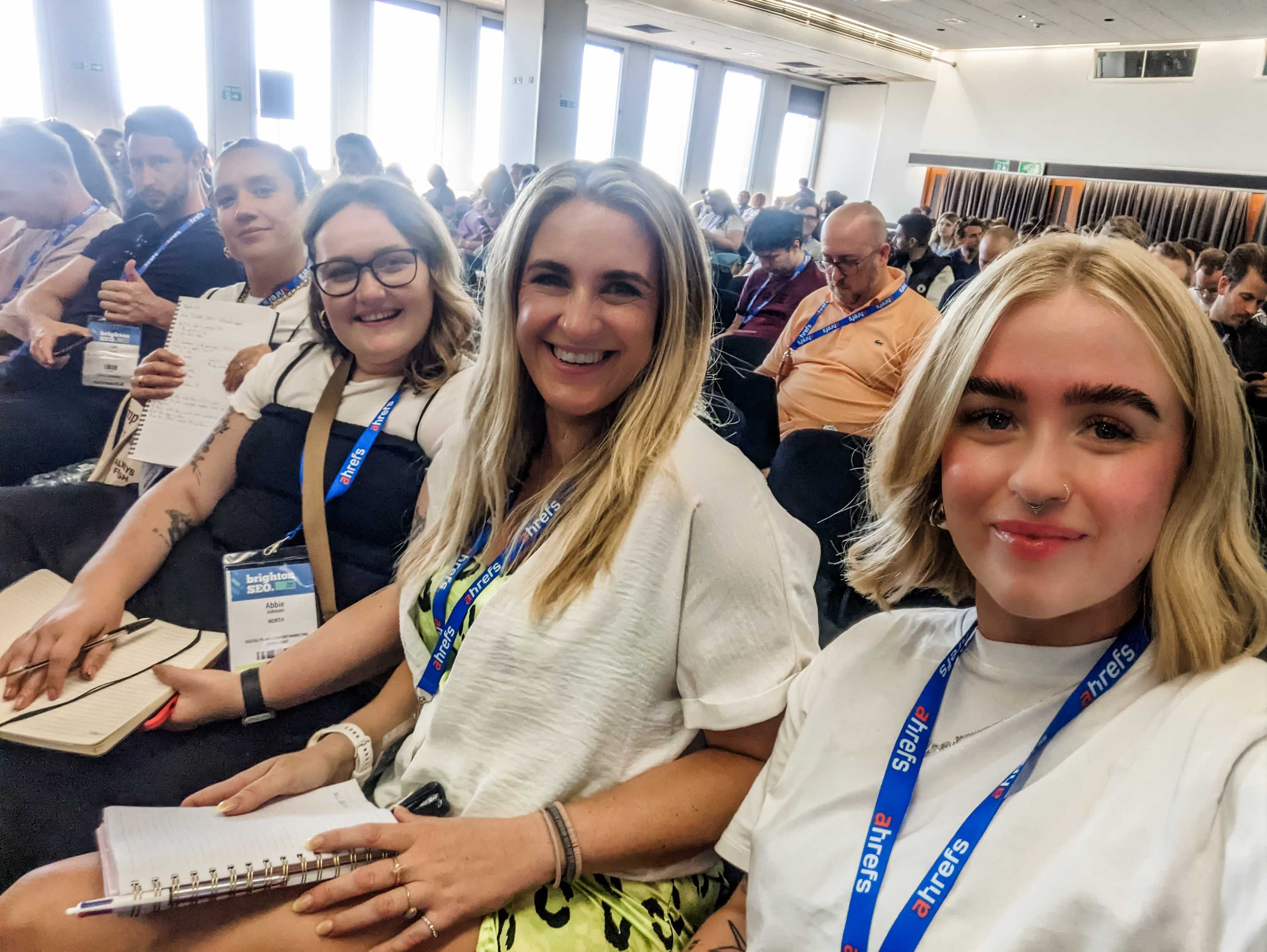
We caught Abbie’s first ever brightonSEO talk at the Digital PR & Outreach Fringe event, and safe to say she left a lasting impression on us all. Relevancy is such a hot topic within Digital PR at the minute, and Abbie reminded us how important it is to keep SEO at the heart of your reactive PR strategy.
When it comes to great reactive opportunities, it can be tempting to shoehorn your client into the news that’s on the tips of everyone’s tongues, but that doesn’t always mean it’s the right thing to do - both for brand and SEO.
Abbie’s talk was a helpful reminder to pause and really think about what you’re putting out. There’s absolutely no point building links if Google and, more importantly, readers can’t see the relevancy in them.
Abbie shared a 3-point question system when trying to decide if a reactive opportunity is right for your client:
If you can’t confidently say yes to all these questions, then chances are, the reactive opportunity might not be best suited to your client.
There’s already so much competition within our industry that it’s crucial to set yourself apart and ensure you’re offering journalists content of true value.
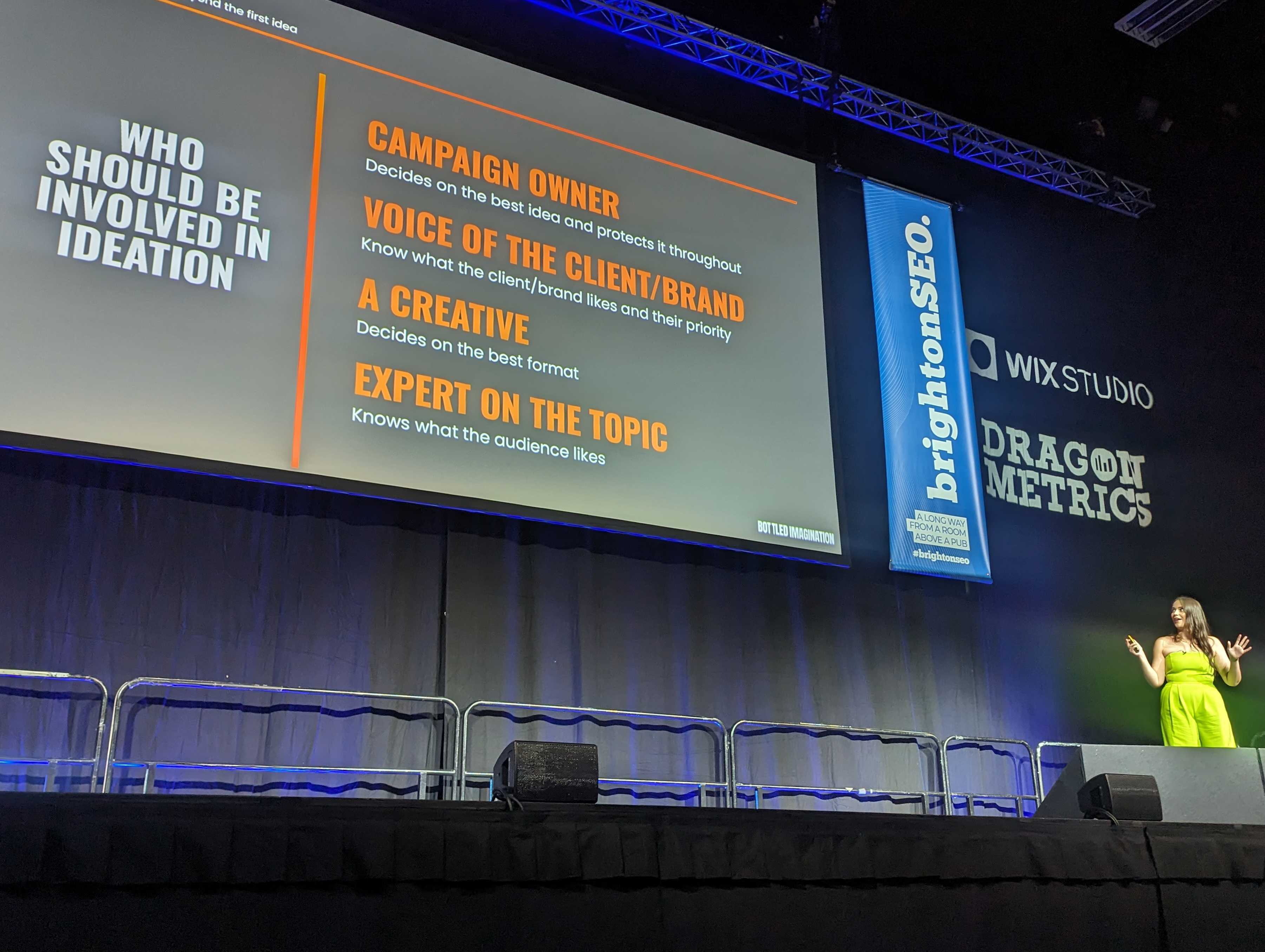
Katy took to the main stage to share her PR campaign ideation tips, particularly how we can look beyond the ‘first idea’. Katy explained that coming up with campaign ideas is, put simply, “really hard”, especially when we’re often stifled by so many factors: KPIs, competition, internal pressures, and difficulty cutting through the noise of the press.
Katy revealed that some shocking statistics about the reality of ideation in Digital PR, but it was this one that really struck a chord with me:
70% spend more time on campaign execution than on ideation and strategy.
Katy reminded us that ideation should be, or rather, IS, the absolute bread and butter of what we do in Digital PR. The basic functions of our roles is to ensure that we’re putting our clients in positions where they can set themselves apart, not blend into a sea of competitors all churning out the same stuff.
Our key takeaways from Katy’s talk:
Catherine Jones - From Generic to Genuine: creating stand out content in the AI era
“AI is a computer, so make it compute.”
Catherine shared some excellent food for thought and insights into the limitations of AI-generated content, and also provided practical techniques for writing with originality, authenticity and a distinctive tone of voice. In an age where we’re told we need to worry that AI is going to come for our jobs, Catherine showcased some powerful arguments to why that probably won’t be the case.
She explained that all too often we’re confined by the ‘Content Cage’, in which we follow all the content rules we’ve been told are must do’s, when really these rules are just a framework.
When it comes to AI, the content it produces has a very recognisable style and cadence. Catherine highlighted the ways we can use AI to help us in our writing, but equally recognises all the human stuff it just can’t replicate. At the end of the day, AI is a computer, so Catherine tells us to “make it compute”: planning, ordering your ideas, synonyms and rewording, note taking and paraphrasing, iterations - such as headlines and subheadings, and even questionnaires for any research you’re undertaking.
Catherine’s talk reminded me of the importance of remembering the human factor in our writings.
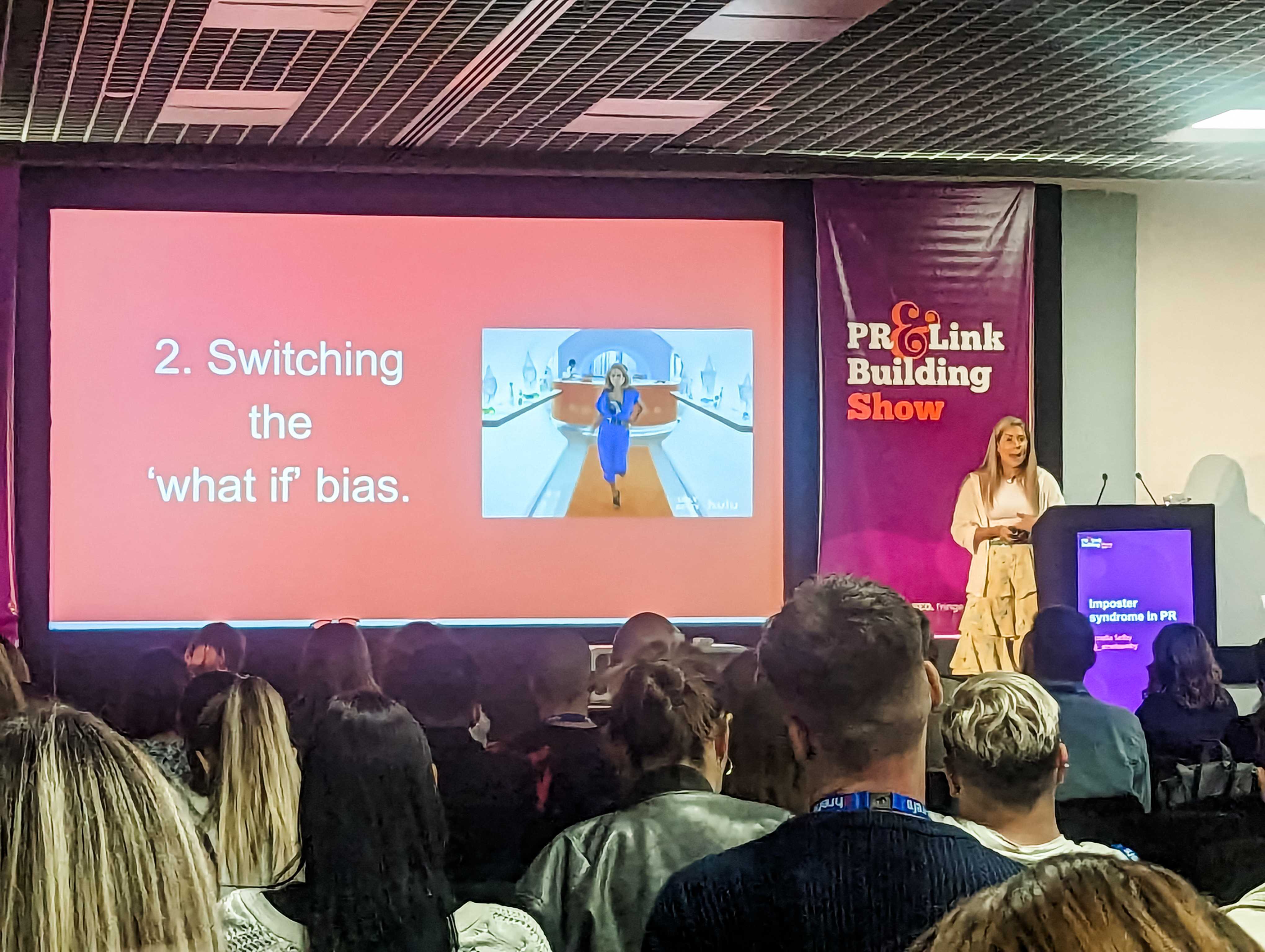
We all absolutely loved Amelia Selby’s talk on ‘Imposter Syndrome in PR’ talk. Imposter syndrome is a common occurrence for employees in many industries, and Amelia described it as sometimes “feeling like a child in an adult’s world”. In this talk, Amelia discussed her own experiences with imposter syndrome, and the common signs that you should be aware of.
These common signs can include:
Following this, Amelia presented some shocking statistics, revealing that 65% of Brits feel at least 3 out of 7 signs of imposter syndrome. It’s particularly prevalent in Digital PR with a staggering 92% of us suffering with it.
There are a few common causes of this that Amelia highlighted in her talk, such as the ‘always on’ culture. In PR, the working day never ends, and our ears will always perk up at recent news that we can create amazing campaigns from. As well as this, the fear of ridicule is something every PR will have. Whether it’s a harsh email, or an idea you loved being dismissed, rejection is a part of everyday life in the industry. Finally, comparing ourselves to others is another cause of imposter syndrome. Digital PR Twitter has blossomed in recent years, and we thrive on celebrating each other’s achievements. Yet, sometimes we do find the comparison process happening, and can absolutely feel disheartened.
To help combat this, Amelia provided some tips for overcoming imposter syndrome:
I think it’s fair to say that all of us have experienced imposter syndrome at some point, and it never just disappears. But with more people in the industry sharing their own personal experiences and ways we can help ourselves, we can all combat this together, and know we aren't alone.
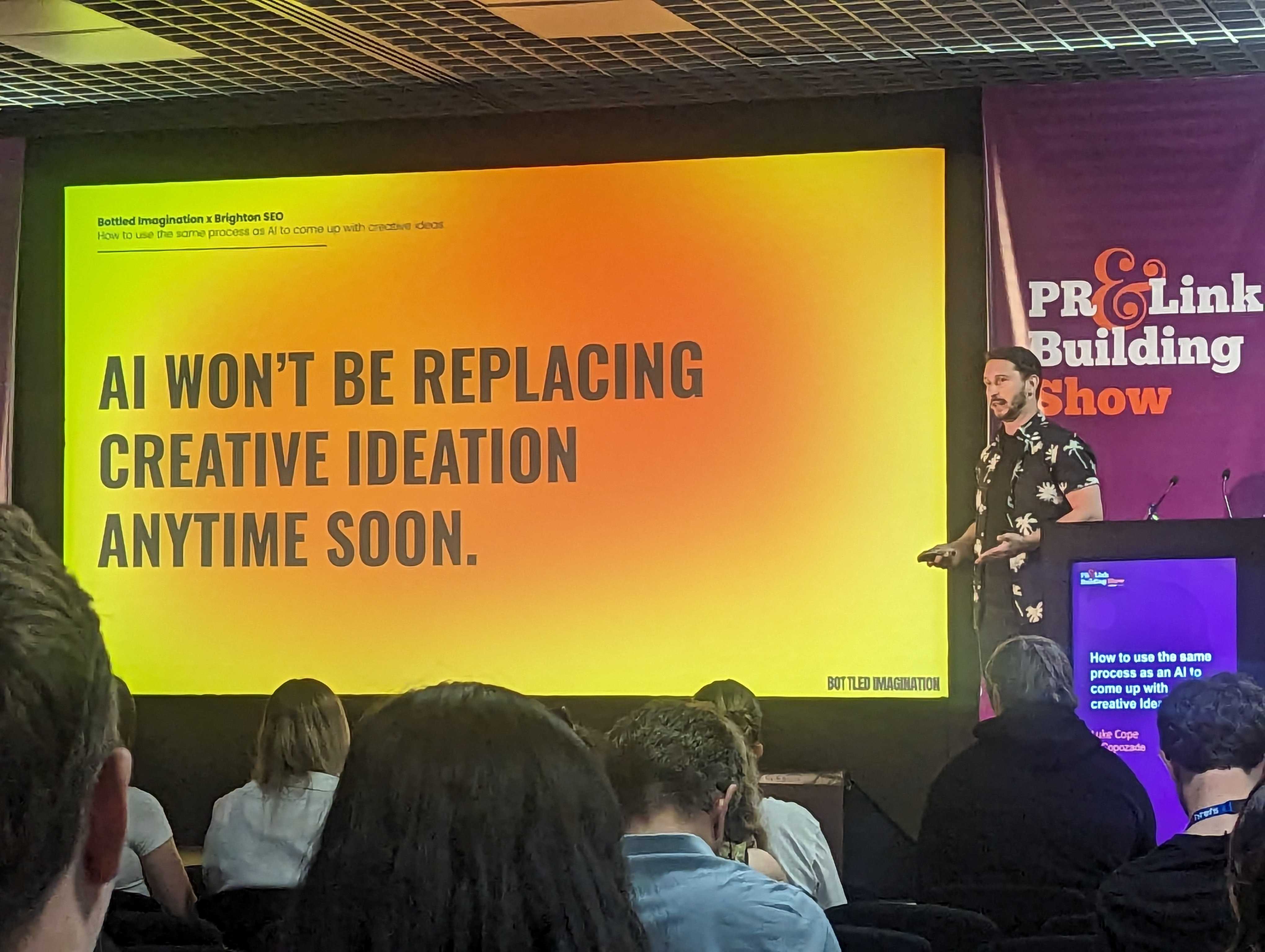
One of the standout talks from the brightonSEO was Luke’s, and he came to the stage to discuss how we can use the same process as an AI to come up with creative ideas. With his witty comments, and entertaining slides, his talk had us captivated from the start.
As well as this, Luke also touched on recent wrongdoings from AI who provided fake comments to journalists for backlinks. With the rise of AI in today’s digital world, this seems to be becoming a common occurrence, but it’s also getting easier to spot. People want to read real life stories, from real people, who can truly add value with their experiences, and AI is not the way forward for this.
The key points from Luke’s talk included different ways we can establish that our ideas are validated and relevant, as well as ensuring we provide readers with emotions, whilst adding value to important topics.
These tips included:
To sum it up, we PRs are more than capable of creating fantastic campaigns and AI really isn’t that great at coming up with ideas. Sorry ChatGPT!
“How does what you’re pitching to me help me achieve my goals?”
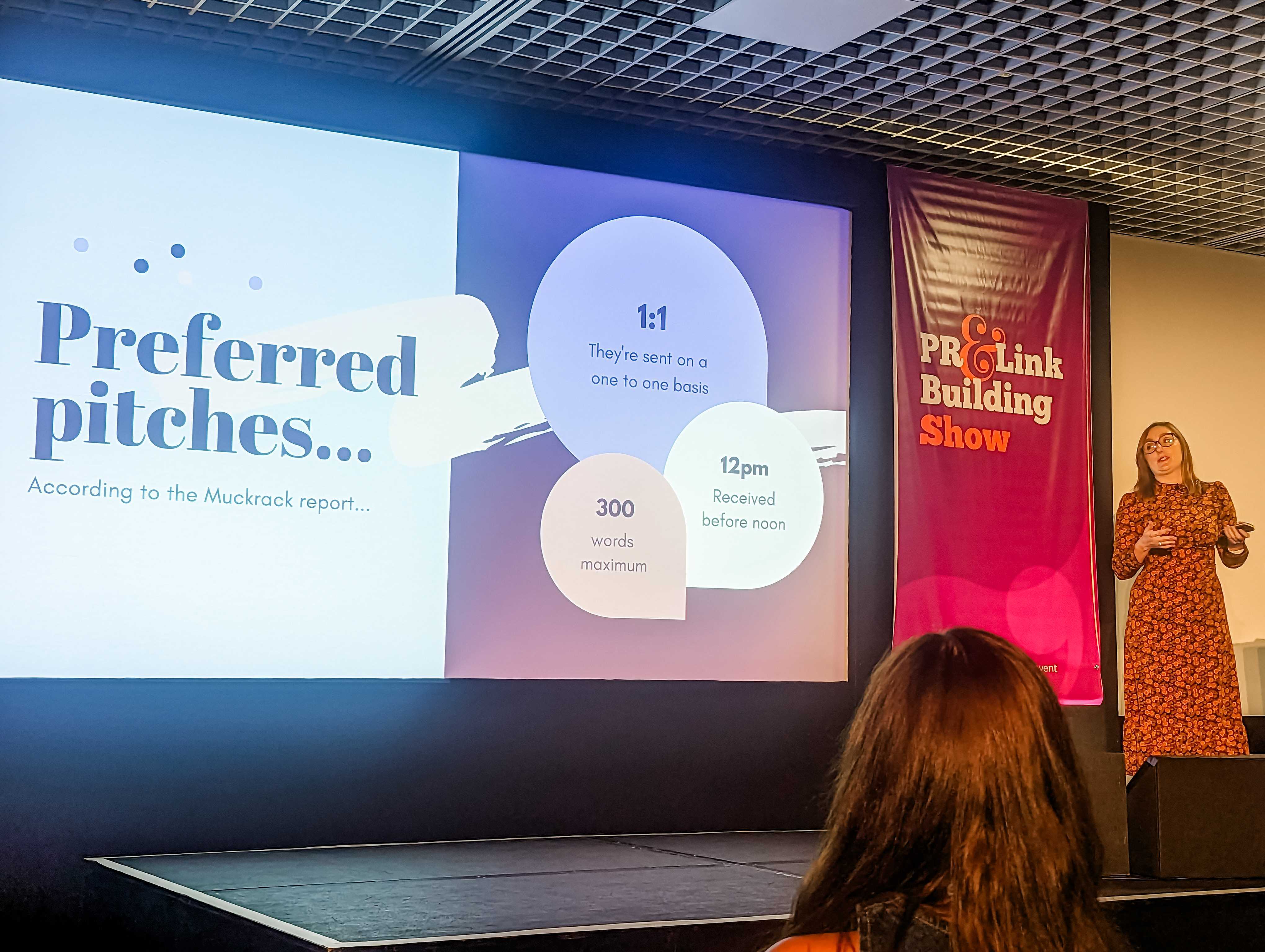
The final talk we want to mention is Zoe’s, who answered the question lingering on every PR’s mind - why I'm ignoring your emails.
Zoe started her talk by sharing some statistics reported by journalists, according to Muckrack:
To answer the burning question, Zoe shared the key reasons why she will ignore your pitch.
First, was a lack of relevance, a word that was brought up in almost every talk during the PR & Link Building Show. For Zoe personally, she writes about weddings, yet has received pitches for Wimbledon themed flooring, lightweight summer duvets, and handling disputes at work. Relevant? We think not.
Another reason was due to the data provided. It is so important to include sources and methodologies, especially when data is included, but in Zoe’s experience, this is something that gets missed a lot of the time and often leaves her questioning where the data has come from, and if it’s reliable.
Other bugbears for Zoe included pitching about an event happening on the same day as the email, sending comments from irrelevant experts, pitching about past events that she didn't go to, and her users then can't go to, and pitches from competitors.
Some of her other major ‘instant delete email’ prompts include pitches with attachments, sending the exact same pitch repeatedly in a short space of time, and including a fake ‘RE:’ in the subject line. In Zoe’s words, “you will be blocked forever”.
Aside from all of these pitch ‘icks’, Zoe did continue to list a few things that she loves to see in her inbox, including:
We definitely took a lot away from this talk, and are certain that everyone else did too.

Keen to chat to our Digital PR Team?
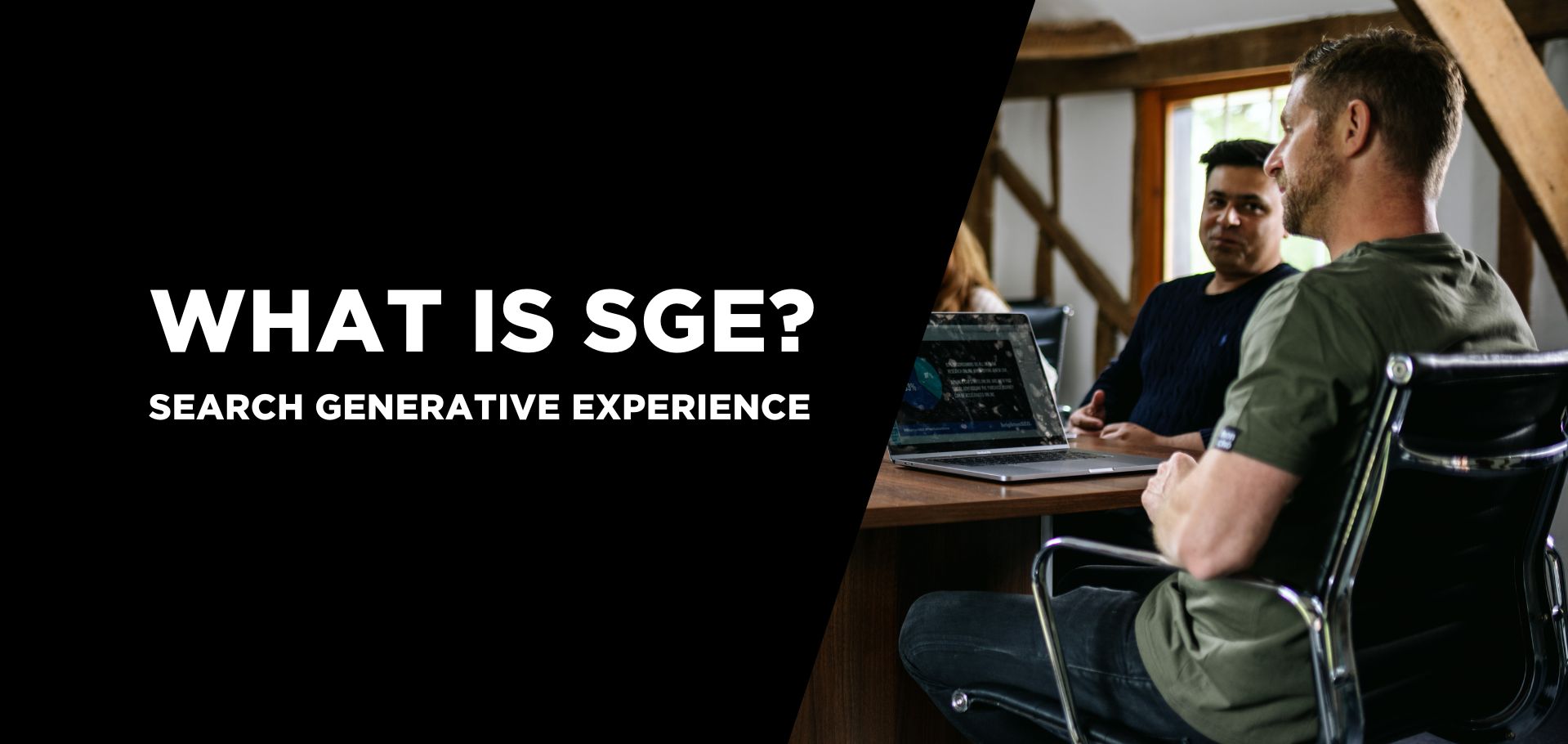
2 min read
What is Google SGE? Think of Google SGE as your helpful buddy on the search results page. Instead of making you click on different websites, it pulls...
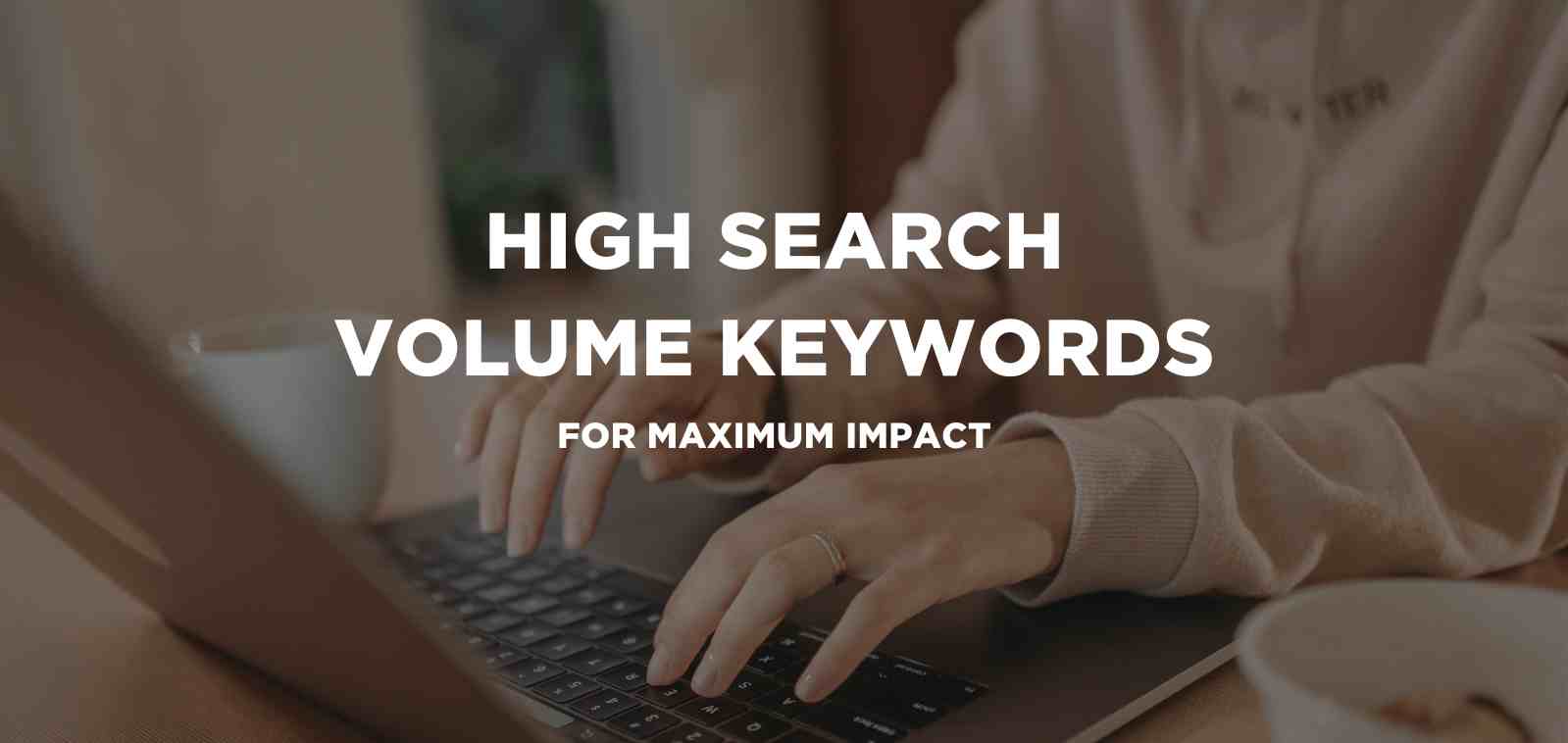
5 min read
Discover the power of high search volume keywords and how to effectively use them to boost your online presence and drive maximum impact.

2 min read
We're delighted to officially announce our partnership with Eflorist, one of the world’s leading flower delivery brands with over 54,000 local flower...
The first of April can be a headache to digital PR teams around the country. Brands everywhere are pulling out all the stops and trying to upstage...
Arriving at my first #MKGO, I wasn’t really sure what to expect. For a networking event that already promised to ditch cringey name tags and offer a...
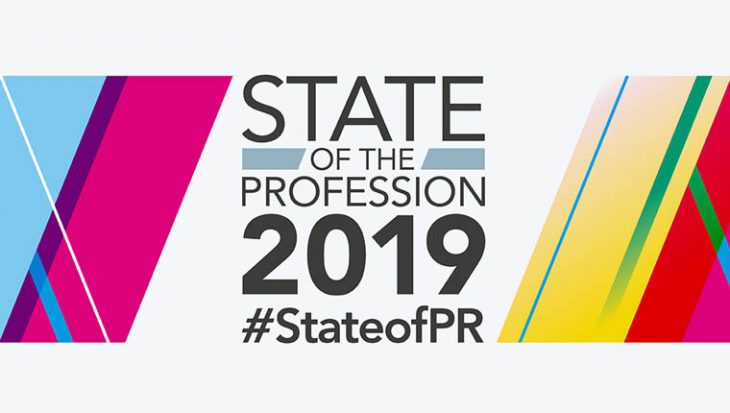
In a time when there is very much a spotlight on spinmaster politics, fake news and a call for brand transparency and media accuracy, the CIPR’s...